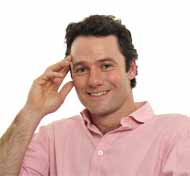Ian Pigott: EU steering group sidelines agriculture

If you were co-ordinating a steering group to redefine the agenda for the meat supply chain you probably wouldn’t invite the Pony Club and Animal Aid to sit at the top table.
But the diversity of representatives that Commissioner Ciolos has assembled for his European innovation partnerships for agricultural productivity and sustainability steering group seems equally arbitrary.
The role of this partnership is to develop private and public collaboration between agriculture, science and others, to stimulate, among other things, innovation.
When the commissioner launched his EIP last year, he stated that the key challenges for agriculture were not just how to produce more, but how to produce better.
He added that embracing demand-driven research and innovation as well as improved dissemination of best practice would be essential.
A vital cog in the Brussels wheel one might assume, this group will be very influential in the allocation of funding (proposed at E4.5bn) for agri-food research for the forthcoming Horizon 2020.
So when he announced his assembled steering group last month, I was somewhat surprised to read that there were precious few representatives from commercial agriculture or from the leading research institutes and universities in the EU.
Out of the 42 seats at the table, well over a quarter are occupied by NGOs and minority influence groups, for example representations from peasant farmer lobbies (their words not mine), the slow food movement and a pair of seats for Green 10 which is an alliance of environmental NGOs.
But there is no room for the animal feed industry or the animal breeding sector (an area where the EU excels), nor are seats available for agricultural engineering, soil science or precision ‘omics’. All of which one would assume to be vital areas of research if we are to meet the commissioners’ challenge of producing more and producing better.
I have no issues with the objectives of any of these organisations, but it cannot be denied that the NGOs assert a disproportionate influence within the EU agenda for agriculture and research.
Some cynics blame commercial farming and leading research institutes for not making their voices heard and losing ground to the NGOs in the art of lobbying, PR and social media.
But if a policy agenda is being decided, shouldn’t the commission be above allowing the squeakiest wheels getting the most oil?
Commissioner Ciolos could do worse than take heed from the UK’s experience. Rothamsted, one of leading research institutes in the whole of Europe, nearly disappeared in the 80s and 90s when the government decided that commercial research was to be replaced by environmental research as the main focus. It is still trying to repair the damage of that decision 30 years on. And while the mantra for Ciolos’ EIP for Horizon 2020 may be well intended, he should find the time to read Feeding the Future – innovation requirements for primary food production in the UK to 2030.
This paper was published after a year-long consultative process and was lauded by both industry and most public sector funders of UK agricultural research largely because of its direct and unbiased approach. It was not an opportunity for cronyism nor was it a soapbox for NGOs to justify their existence.
With taxpayers contribution to agriculture ever more scrutinised, a drive for greater efficiency and demands for more robust food security, we as taxpayers and beneficiaries of the agri food budget should have a balanced and proportional representation of commercial agriculture and research within the EIP decision-making process.
